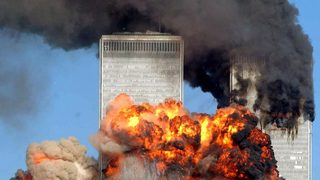
In the last three months, as the US-led war in Afghanistan has escalated, the situation of Muslim women has taken theworld’s center stage. With many Afghan men killed in fighting, women now make up 54 percent of Afghanistan’spopulation. Many Afghan women have led lives constrained by both ancient customs and poverty: the female literacyrate is less than 5 percent. But before the country was devoured by violence, Afghan women were granted the vote in1929 in a constitutional monarchy. The Afghan king made the head scarf, sometimes known as a burka, optional in 1959.The country’s constitution institutionalized women’s right to education. By 1979, some 50 percent of college studentsin Kabul were female. Before the mujahideen took over the country in 1992, women accounted for 70 percent ofteachers, 50 percent of government workers, and 40 percent of medical doctors, according to the UN.
The debate over women’s role in Islamic societies has long been an issue debated by women. Last week on the programwe began a discussion about fundamentalism and freedom with two Muslim women. We will continue that discussion today:with the issue of wearing the hijab, one of the most heated discussions between Muslim women-especially in thiscountry. Some say the practice of covering the head symbolizes Americans’ unease over the role of women in Muslimsocieties. But others say wearing the hijab, or head covering traditional to women in Islam, is liberating. We arejoined by two Muslim, Arab-American women, one who covers and one who does not.
Guests:
- Layla El-Wafi, caseworker at the Arab-American Family Support Center.
- Zuvia Hamid, writer and medical doctor (originally from Pakistan).
- Mehrnaz Saeed-Vafa, filmmaker and professor at the department of Film & Video at Columbia College,Chicago. Made the film “A Tajik Woman” which we watched on the show last week.
- Dr. Fawzia Afzal-Khan, professor at Montclair State University, and author of ??Cultural Imperialism andthe Indo-English Novel.












Media Options